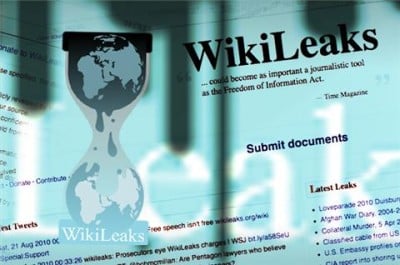Taking Aim: WikiLeaks, Congress and Hostile Agencies

Various scribbles have started to pepper the conversation started by the adventurous head of the CIA Mike Pompeo after he branded WikiLeaks a hostile intelligence agency before the Center for Strategic and International Studies. (This would have generated a wry smile of content from Julian Assange.)
The words of the Central Intelligence Agency chief are worth retelling in their mind distorting wonder:
“It’s time to call out WikiLeaks for what it is, a non-state hostile intelligence service, often abetted by state actors like Russia.”[1]
Individuals like Assange and Edward Snowden receive the necessary special treatment as history’s great turncoats:
“As long as they make a splash, they care nothing about the lives they put at risk or the damage they cause to national security.”
Celebrity disrupters, dangerous irritants, narcissists in pursuit of personal glory.
This wretchedly desperate sentiment – for its nothing else – has wound its way into Congressional ponderings. Prior to the August District Work Period, the Senate Intelligence Committee took up Pompeo’s views, slotting into the Senate Intelligence Authorization Act (SB 1761) some suggestive wording:
“It is the sense of Congress that WikiLeaks and the senior leadership of WikiLeaks resembles a non-state hostile intelligence service often abetted by state actors and should be treated as such a service by the United States.”[2]
This inventive provision passed 14-1, the only demurral coming from Democrat Ron Wyden of Oregon. To The Hill, Wyden explained that
“the use of the novel phrase ‘non-state intelligence service’ may have legal, constitutional, and policy implications, particularly should it be applied to journalists inquiring about secrets.”[3]
And what, he feared, of the “unstated course of action” against those sinister non-state hostile intelligence services?
Responses to the provision have varied. Patrick G. Eddington of the Cato Institute was less than rosy about WikiLeaks, suggesting that such “Sense of Congress” provisions are pure “legislative puffery” lacking legal force, at least as far as Assange is concerned.
“To claim otherwise trivializes the real threats that actual investigative journalists and their news organizations face from the US government.”[4]
Forget the Assange obsession, Eddington suggests to the Senate and House Intelligence Committees, and focus on dragging out the rotten apples, those “real problems and real bad actors inside the American Intelligence Community”. Eddington evidently forgets that such rotten fruit can have establishment camouflage.
Former CIA officer Philip Giraldi takes the wording of the clause more seriously, seeing it as a form of justification to ground an action against WikiLeaks. But another expansive outcome could just as well ensue, empowering “federal law enforcement agencies to go after legitimate media outlets that obtain and publish classified information regarded as critical or even damaging to government policies.”[5] (Giraldi shares with Eddington a common trait of not regarding WikiLeaks as a legitimate media outlet. Such is the nature of backhanded praise.)
This sort of legislative interference is far from unusual. Australia’s own parliament, whose laws originally supplied no means or facility to prosecute Assange or WikiLeaks activities over US material per se, did pass what was tantamount to a “WikiLeaks amendment” in 2011.
To understand the amendment, it is worth looking at the political contortions adopted by the Australia prime minister of the period, Julia Gillard. Rather than considering the legal improbabilities at hand, she openly called the publishing of US cables “a grossly irresponsible thing to do and an illegal thing to do”, a point at odds with the finding by the Australian Federal Police that nothing unlawful had happened – at least in the Australian context.[6]
“The AFP has completed its evaluation of the material available,” came its statement in December 2010, “and has not established the existence of any criminal offences where Australia would have jurisdiction.”
A year later, the Intelligence Services Legislative Amendment Bill 2011 made its way through the drafting process. It seemed innocuous, a sort of laundry list of inoffensive provisions. But one crucial change mattered: the tinkering of the term “foreign intelligence” in the Australian Security Intelligence Organisation Act 1979.
The original definition was a narrower one, making foreign intelligence relevant to covering “capabilities, intentions or activities” of foreign governments, entities controlled by the same or foreign political organisations. The current definition draws the tent outwards to the “capabilities, intentions or activities of people or organisations outside Australia.”
Such a change should have sent the political classes into a furious state. But it passed with barely a murmur, only ruffling the Australian Greens concerned that it might arrogate too much power to ASIO.
So soporific was the debate that some senators never bothered to turn up. Few, it seemed, had read the submission by law academic Patrick Emerton to the Senate Legal and Constitutional Affairs Committee. It reads as a sober warning to legislative overstretch, a parliamentary gift to bureaucratic paranoia:
“The amendments would permit ASIO to investigate a far wider range of individuals and organisations, even where Australia’s defence interests and international relations are not at stake.”[7]
Legislative sloppiness, congressional warnings, and the ignorant passage of statutes – these point to business as usual, the wood of unwary representatives. But they also suggest a serious program at work: the targeting and punishment, not merely of whistleblowers, but the outlets that disseminate their findings. That much can be said for such legislative puffery.
Dr. Binoy Kampmark was a Commonwealth Scholar at Selwyn College, Cambridge. He lectures at RMIT University, Melbourne. Email: [email protected]
Notes
[7] https://www.monash.edu/__data/assets/pdf_file/0015/140604/intel-services-legislation-amend-bill.pdf

